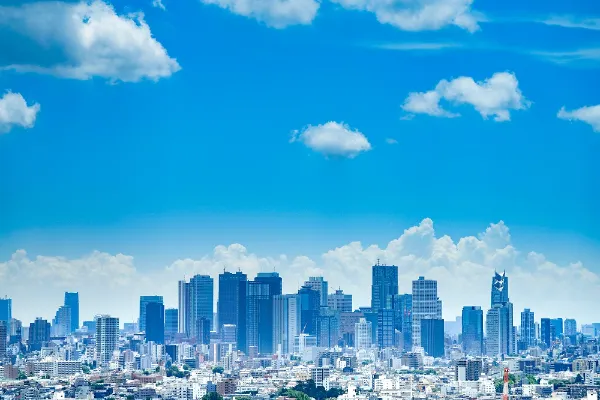
For more legal insights, see Vol. 2 Startup Visa Duration Increase Two Years Starting January 2025, which offers a deeper analysis of Japan’s Startup Visa.
- A. What is the Startup Visa System?
- B. Why Startup Visa System?
- C. Benefits of the Startup Visa System
- 1. Time-Saving
- 2. Cost-Effective
- 3. Autonomy
- D. The procedure for applying for the Startup Visa.
- 1. Preparing the necessary documents.
- 2. Applying to the authority
- 3. Receiving the result.
- 4. Submitting visa application
- E. After a Startup Visa is obtained
- 1. Setting up physical Office
- 2. Incorporation
- 3. Preparing for the Start of business,
- 4. Various administrative applications.
- 5. Application for changing the Status of Residence to Business Manager Visa
- F. Restrictions on the Startup Visa System
- G. Conclusion
This is the sixth in a series of articles from GVA Global LPC providing basic legal information to foreign companies and individuals planning to do business in Japan. This series of articles will highlight Japanese laws and regulations central to their need to smoothen their business venture into the Japanese market.
Aiming to strengthen the international competitiveness of the industry and to form a hub for international economic activities in Japan, the Startup Visa System has been introduced by the Japanese government in collaboration with local governments. Under this system, special preferential measures of the Immigration Control Act have been created. Currently, two types of Startup VISA programs are offered by different jurisdictions of government offices.
First is the Program to Promote Startups, operated by the Cabinet Office. This program was started in 2015, covering areas such as Tokyo Metropolitan, Kanagawa Prefecture, Kyoto Prefecture, Niigata City, Fukuoka City, Kitakyushu City, Sendai City, Aichi Prefecture, Hiroshima Prefecture, and Imabari City.
The other program is the Projects for Encouraging Foreign Entrepreneurs to Start Business, which the Ministry of Economy, Trade and Industry started in late 2018. This program is implemented in Fukuoka City, Aichi Prefecture, Gifu Prefecture, Kobe City, Osaka City, Mie Prefecture, Hokkaido Prefecture, Sendai City, Ibaraki Prefecture, Oita Prefecture, Kyoto Prefecture, and Shibuya City.
The requirements and benefits of both programs are largely similar, with the only difference being the allowed period of business preparation and the residency status category.
A. What is the Startup Visa System?
Under this system, foreigners planning to start a new business in Japan may be granted a Status of Residence of six (6) months as a preparation period for setting up their businesses. This system is limited to selected areas known as the National Strategic Special Zones. More than ten (10) locations, including Tokyo, have implemented this system.
B. Why Startup Visa System?
There are various legal hurdles for foreigners to start businesses in Japan. Normally, suppose a foreigner intends to run a business in Japan. In that case, he or she has to obtain a Business Manager Visa under the Japanese Immigration Control Act, which we explained in our past article ( https://gvalaw.jp/en/blog/b20231226 ).
The pre-conditions for obtaining the Business Manager Visa include employing two or more full-time employees or investing at least JPY5 million as a company’s registered capital. In addition to establishing a physical office in Japan, these requirements are seen as an uphill hurdle for some foreigners. As a result, it becomes necessary for foreigners to venture with a local business partner in Japan to conduct their businesses. Having a local partner would allow all the required pre-work to be carried out by their local partner in advance to fulfill the conditions for foreigners applying for a Business Manager Visa, allowing them to be physically located in Japan and run the business.
However, obtaining a visa under the Startup Visa System would allow foreigners to enter Japan (before establishing their business) and conduct all necessary work by themselves. This would avoid the hurdles mentioned above. Upon completion of the pre-work, foreigners would (later) have less difficulty applying for a Business Manager Visa for long-term residence and running the business.
C. Benefits of the Startup Visa System
1. Time-Saving
A Startup Visa would allow a foreigner to legally enter Japan, even before conducting any preparation for starting up businesses. The visa period is six months, which may be extended to one year under certain conditions. During the visa’s validity period, foreign entrepreneurs may come to Japan to establish the company and carry out other necessary activities for setting up their business, including market research, establishing a business network, and other activities.
2. Cost-Effective
Under the Startup Visa System, a visa will be granted before making any financial investment, which could minimize the financial risks for foreign entities or individuals. Without a Startup Visa, one can only enter Japan for a short stay under a short-term visa, which means that unnecessary expenses may be incurred for transportation or accommodation. Obtaining a Startup Visa would allow foreigners to personally monitor all the pre-work in establishing their companies and provide them more options in establishing their businesses, compared to when they rely on third parties or local business partners. Being in Japan to monitor or personally conduct the pre-work will also minimize the risk of rejecting their application for a Business Manager Visa.
3. Autonomy
The Startup Visa System allows foreign entrepreneurs full autonomy in conducting business in Japan. The ability to perform the preparation activities and set up the business alone would reduce the need to rely on local partners. It is considered a significant advantage over the regular visa system.
D. The procedure for applying for the Startup Visa.
The following are the necessary steps to apply for the Startup Visa under the Startup Visa System. For this purpose, we will use Tokyo Metropolitan as the location for the business as an example.
1. Preparing the necessary documents.
The essential documents for application include an application form, a business plan, a resume of the applicant, a copy of the passport, documents proving six-month residence in Japan (e.g., proof of accommodation such as lease agreement, hotel booking.), and documents proving financial state.
The most crucial document is the Business Plan. The application will be examined based on and focusing mainly on the Business Plan. The plan must be feasible, and the explanation must be persuasive. A detailed explanation of the Business Plan has to be made regarding the following issues:
Contents of Business Plan | |
|---|---|
Description of Business | What kind of business will be carried out |
Region of Business | Location of the business that the applicant is planning to conduct the business |
Specific Plan | The detail on preparations and activities of the business |
Fund | Financial information, such as the amount of capital, profit projection, the manner in raising the capital, and other related documents. |
Organization | Information on the organization structure, who the directors/executives are, and what role the applicant plays. |
Scale of Business | How big is the business planned to be? |
2. Applying to the authority
The application must be made to the Tokyo Metropolitan Government under the Business Concierge Tokyo. The application may be made by the applicant (the person under the name of the application is made under) or may be made by an Immigration Attorney on behalf of the applicant. It should be noted that family members or friends living in Japan cannot apply on behalf of the applicant.
3. Receiving the result.
If the Tokyo Metropolitan Government accepts and admits the application under the Startup Visa System, a Certificate of Confirmation of Startup Activity will be issued and delivered to the applicant in about two weeks. If the application is unfortunately rejected, a notice of results will also be given.
4. Submitting visa application
After receiving the Certificate of Confirmation of Startup Activity, an application for a Startup Visa must be made to the Tokyo Regional Immigration Bureau. Please ensure that an application must be made with the attached Certificate of Confirmation of Startup Activities. After the examination by the Immigration Office is complete and the application is accepted, a visa will be issued to the applicant.
E. After a Startup Visa is obtained
After obtaining the visa, the applicant could enter Japan to start up the business for the visa period. If the Startup Visa was accepted through the application to the Tokyo Metropolitan, then the applicant will be interviewed by Tokyo Metropolitan Government officials. During such an interview, the visa holder will be asked questions about the details of the startup and its progress. It should be noted that from the date of entering Japan, the Tokyo Metropolitan Government will conduct an interview once every two months to make the necessary examination and inspection of the progress of the startup activities. For reference, the following are the essential work that should be carried out upon entering Japan:
1. Setting up physical Office
The visa holder shall search for the premises of the business office before the establishment/registration of the company and conclude the lease contract.
2. Incorporation
Once the business office has been decided, the company’s incorporation procedures shall be followed. Establishing a company to meet the requirements for obtaining the Status of Residence of Business Manager is necessary.
3. Preparing for the Start of business,
After the company’s incorporation, it is necessary to submit notifications to the Tax Office and open a corporate account.
4. Various administrative applications.
When starting a business requiring administrative authorization, an application for the relevant administrative authority must be made in advance.
5. Application for changing the Status of Residence to Business Manager Visa
The application conditions and documents must be completed, and the application for a change to the Status of Residence of the Business Manager must be submitted before the Startup Visa expires.
F. Restrictions on the Startup Visa System
There are also some significant restrictions on foreign entrepreneurs using the new system. The following are two prominent examples:
1. Eligibility for the new system is restricted to those planning to start their businesses in the areas that are implementing this system, and certified municipalities are providing Startup Visas to companies that operate in business areas suited to each region.
2. This system cannot be used by foreign nationals already staying in Japan with long-term visas. However, some programs give benefits to international students who are preparing to launch their businesses. A visa program was offered to international students from certified universities in November 2020. Suppose such students conduct startup activities while still at that university and wish to continue their business activities even after graduating. In that case, they will be granted if they fulfill specific requirements.
G. Conclusion
In the business environment, speed is vital as good business ideas or business opportunities can be devastated during the six months to a year it may take to obtain a Business Manager Visa. As such, the Startup Visa System would be an ideal option for foreign entities or individuals to consider as a means to enter Japan for their business venture. Please be informed that this article is merely for reference purposes. It is advisable to consult with a legal professional to understand the details better and make your business experience in Japan smooth and successful.
Supervisor:
Saiful Aziz
Support other attorneys in drafting and reviewing English language agreements since joining GVA LPC in 2018. Provide support to our clients for their business expansion into the Malaysian market as qualified Malaysia attorney. Main area of expertise is in commercial laws which include E-commerce (EC) law and Contract Law. Involve in supporting our start-up clients and as a member of the firm’s Global Team. Actively participate with other members of GVA to support start-up companies in expanding their business both inbound and outbound.
Takuma Yoshioka
Handles a wide variety of matters related to corporate legal structures and disputes since joining GVA LPC in 2021. Supports blockchain-related businesses such as STOs and NFTs as a member of speciality team Web3. Associate member of the Chartered Institute of Arbitrators (CIArb) and focuses on international legal structure.










